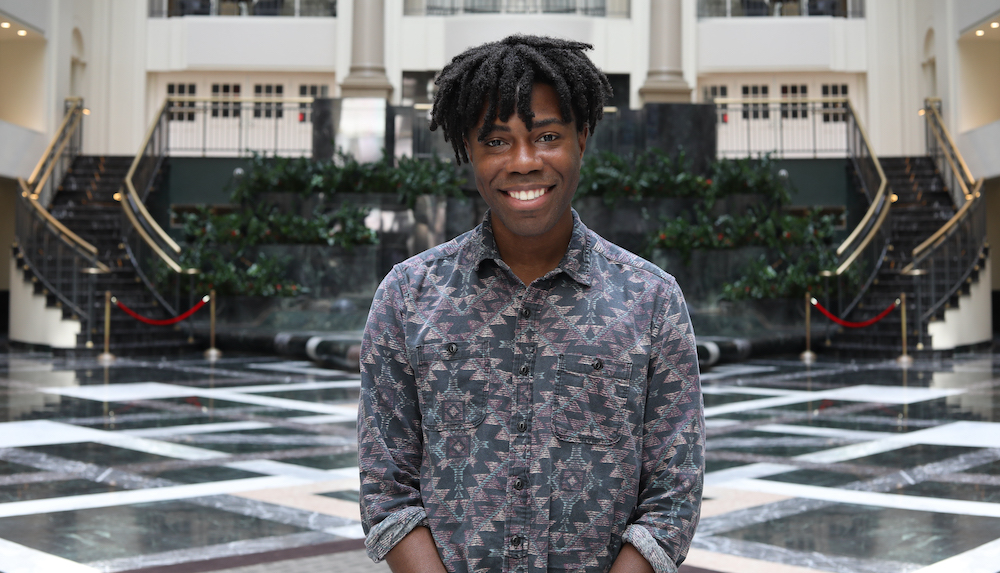
This is How I Got Here, a series where we chart the career journeys of technologists. Want to tell your story? Get in touch.
Brian Seel knew he liked computers, but didn’t really know what to do with that interest.
On the advice of his parents, he picked a computer science degree at the University of Idaho. Add a tuition deal he couldn’t pass up with the National Security Agency (NSA), and 12 years later he’s still a software engineer working with the government — now at the Baltimore City Department of Transportation (DOT).
“Looking back on it, I don’t think I understood what a computer science degree really was,” Seel said.
It was a career his parents advised was on the rise, and held opportunity for good pay. He went to a state school, which had a program called Scholarship for service that paid for the last two years of college. It was that tuition program that sent Seel on the path of working in with the NSA for the next 11 years: After finishing college, Seel started with the agency earning between $50,000 and $60,000 a year, with no college debt.
College was important in helping Seel stumble into what he wanted to do with his life, but he has gained more skills since through practical application. Like many in software engineering, Seel now questions whether a four-year degree is necessary to enter the field.
“The more important skills I’ve learned since then are how to identify a problem, use Stack Overflow, and read documentation,” he said. “Maybe going to college primed me and helped me figure out some of those things, but I could have gone to some trade school and gotten a lot of the same benefits.”
Seel feels he’s had more technical growth as a software engineer working on the small team of the DOT in the last year than he had working on large teams as an employee of the NSA, or with tech firms contracted to do work with the NSA. Within Baltimore’s DOT, he said, he has autonomy. The system is less rigid, as the organization prioritizes results over micromanaging. Plus, he gets to see the results of his work.
I was like, I’ve stumbled into these different positions, but I haven’t really figured out what I’m really looking for.
“I’m walking down the street right now. If I potentially saw an issue on our sidewalks or streets, this is probably an issue elsewhere in the city,” Seel said. At his job, he can have an immediate impact: “What are the things we are doing to understand the problem from a data perspective and how can we start to work so the problem doesn’t keep happening?”
With the NSA, which is the Maryland-based U.S. Department of Defense agency responsible for cryptographic and communications intelligence, there was a very strict framework. Often he would solve a technical problem and “throw it over the wall,” never to be seen again due to security clearances and the compartmentalization of work in the agency and organizations the agency contracted.
At the City agency, “as opposed to one of the senior devs saying, ‘This is how we’re going to do things,’ I’m able to figure that out myself,” Seel said. “There was some of that toxic culture at the NSA, where if you didn’t know something, you were looked down upon. There’s a much more fostering culture compared to working at the NSA.”
For years, Seel was thinking about leaving the NSA and the state of Maryland and using his software engineering skills differently. He went from working directly as an NSA employee to a contractor working on defense contracts with two-year stints at companies such as Raytheon Si Government Solutions, Netsage and SYSTOLIC, Inc.
“I kind of stumbled into [the defense contractor] career path. I wasn’t looking to move to Maryland,” Seel said. “But I also graduated in 2008 which was during the downturn so there weren’t a ton of jobs out there either.”
But having a good job and the right job for you aren’t the same thing. Whether it’s a stressful work environment, a lack of fulfillment in the job duties or not being personally aligned with the mission of the organization, eventually the question comes: Is this what I want to do with the rest of my life?
“It wasn’t really until 2019, where I was like, ‘I’ve stumbled into these different positions, but I haven’t really figured out what I’m really looking for,’” Seel said. This was also the time he got interested in transportation, which inspired Seel to make a site charting the performance of MTA buses. It was also around this time that Steve Sharkey was appointed as the City’s director of transportation, moving over from the director role at the Department of General Services.
So, Seel reached out. They had coffee, and soon after, Seel more or less made his own position.
His official position is contact specialist II. In layman’s terms, he’s a data analyst or a software developer on a data analysis team. On the team, he’s the guy who’s adept at making data scrapers, and an expert in Python.
His path to the DOT was an exercise in figuring out what you want and shooting your shot. It’s not exactly from Curry range getting a job in local government when you have 10 years of experience as a software engineer with the NSA, but turning a cold email with no connections in the city into a position tailor made for you is firmly feet behind the line.
“Figure out what you’re interested in and take your shot. I got lucky and got it on that first shot,” said Seel. “But figuring out what’s important to me, looking for that opportunity, and then when the city appointed Steve Sharkey and the city was making those steps towards being more progressive in transportation, more of a data-focused city — I was able to make that jump.”
Donte Kirby is a 2020-2022 corps member for Report for America, an initiative of The Groundtruth Project that pairs young journalists with local newsrooms. This position is supported by the Robert W. Deutsch Foundation.Join the conversation!
Find news, events, jobs and people who share your interests on Technical.ly's open community Slack

Baltimore daily roundup: An HBCU innovation champion's journey; Sen. Sanders visits Morgan State; Humane Ai review debate

Baltimore daily roundup: Medtech made in Baltimore; Sen. Sanders visits Morgan State; Humane Ai review debate

Baltimore daily roundup: The city's new esports lab; a conference in Wilmington; GBC reports $4B of economic activity


